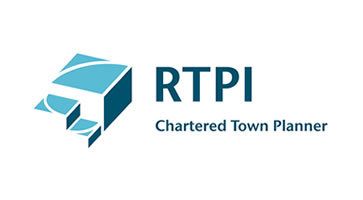As the year draws to a close and the holidays approach, our Director Ricard Pigott looks back to review what has been an interesting year, and looks ahead to the opportunities of 2023.
Review 2022
The annual rush to get things submitted and completed before Christmas at Planning & Design Practice has for us this year been punctuated by an unusual distraction in the form of the football World Cup. I have to admit that I was supporting Argentina in the final largely because of their universally loved number 10. Lionel Messi retired from international football in 2016 because of a catalogue of ‘painful’ failures but he was tempted back and managed to win the big one at the 5th time of asking. I think one of the key lessons from that victory was that if you keep persevering and ‘doing the right things’, anything is possible if you work as a collective and have strong leadership.
Which brings me to one of the issues of the day, Climate Change. Progress on reducing the UK’s carbon emissions appears slow, largely because local and national policies and government action appear to be out of step with public opinion. A YouGov survey has found that 80 per cent of people in the UK support regulations making solar panels mandatory on new-build houses (only 9 per cent oppose this). The survey also found that 66 per cent believe that battery storage should be included in new homes to increase the efficiency of solar panels while 60 per cent want to see heat pumps included in all new-build homes, with just 17 per cent opposed. MCS Charitable Foundation, who commissioned the survey, argue that unless a requirement for all new-build homes to have solar panels, battery storage and heat pumps as standard is included in the government’s Future Homes Standard, carbon targets will be hard to meet. And who can argue with this? If housebuilders know that these measures are mandatory they can be factored into costs from an early stage, safe in the knowledge that they are delivering a superior ‘product’ that is better adapted to meet our future needs.
It is encouraging to see that the moratorium on wind power seems to be coming to an end after more than a decade when it has been nigh on impossible to get planning permission to erect an on-shore wind turbine. You can read more about that HERE.
When it comes to retrofit and home improvements, the system is also out of step with the views of ordinary people. An article in the Architects’ Journal in February summed it up perfectly: “Rules governing listed buildings prevent us from upgrading single glazing on homes – completely bonkers when you consider our uphill struggle to sustainably retrofit the UK’s existing housing stock. We have removed the common sense factor in determining planning decisions; the idea that the natural state of a window would outweigh the need to reduce a building’s carbon footprint is perplexing.”
At a local policy level, whilst some local planning authorities are adopting their own supplementary planning documents or reviewing their Local Plan policies on tackling climate change, we feel that they could go further to raise standards. It remains a very important issues for local councillors, reflecting the public mood.
The requirement to achievement Biodiversity Net Gain (BNG) on all developments larger than householder improvements is now becoming a reality and will become law from November 2023. BNG is an approach to development, and/or land management, that aims to leave the natural environment in a measurably better state (at least 10% better) than it was beforehand.
However, there remains uncertainty about how exactly this should be secured in instances where it can be achieved on site and even more uncertainty about how it can be achieved where net gain needs to delivered off site. The availability of offsite land to deliver BNG requirements appears to be a challenge but an even greater concern appears to be whether Local Planning Authorities have an appropriate administrative resource and skillset to deal with BNG in a timely manner.
For Planning & Design , we have had another year with many proud achievements for our clients and more details can be found on the News page on our website. Particular highlights include helping to provide a significant boost to rural employment opportunities in the Derbyshire Dales, planning permission for a new wedding venue in South Derbyshire, securing the change of use for a Derby drinking landmark, ongoing success in delivering Class Q barn conversions, and being recognised as an RIBA chartered architectural practice. All this in a year in which we celebrated our 20th Anniversary in providing town planning services, architectural expertise and specialised heritage advice.
We are delighted to have continued to work with a diverse range of clients including landowners, existing business owners, farmers and other architects including Matthew Montague, John Smedleys Ltd, Chevin Homes, Derby and Burton University Hospitals Trust, Evans Vettori, Derbyshire County Council, Elvaston Castle and Garden Trust, Callow Hall – Wildhive, Meadowview Homes, and Microsoft Rare Ltd.
In Derby we have got used to being largely back in the office again after 2 years of hybrid working and we can also celebrate another successful year for the Sheffield office which resulted in a move to the iconic Park Hill development, the Grade II* listed set of buildings overlooking the city.
Looking towards 2023, I can only hope that local planning authorities and other key organisations within the planning system can be better resourced as we are finding that 8 and 13 week determination deadlines are becoming increasingly meaningless. Reduced funding and a loss of senior staff has inevitably led to a gap in training and expertise, which in turn leads to longer application times and delays in the development process which has knock on effects for jobs, the economy and the environment. We are doing our bit at Planning & Design to develop our own talent by taking on graduates, sandwich year students and apprentices, and this has always been the approach taken by our long time MD and founder, Jonathan Jenkin, who is retiring at Christmas. We are very sad to see Jonathan hang up his scale ruler but wish him all the best in the future.
All that remains for me to say is that we will continue to strive for ever more sustainable development and hope to see many of you in person over the next 12 months. I would like to wish you all a very Merry Christmas and a Happy New Year.
Richard Pigott, Director, Planning & Design Practice Ltd



